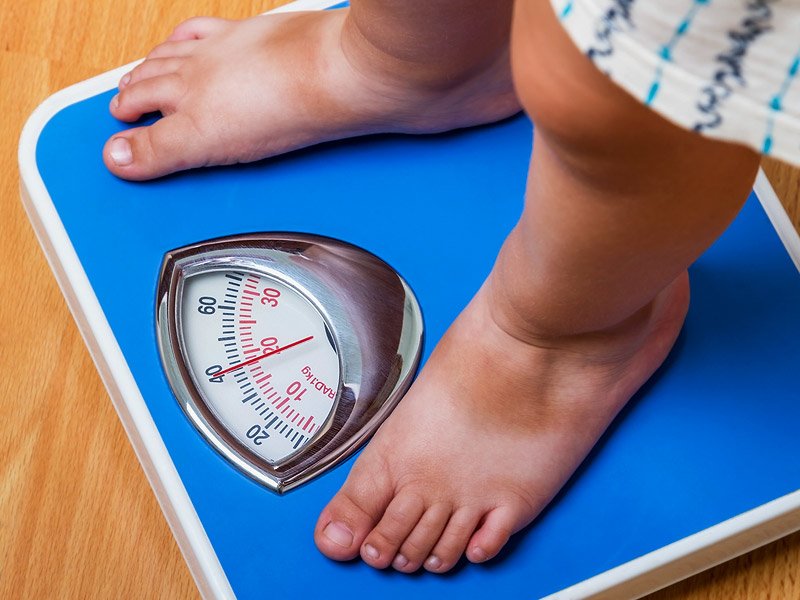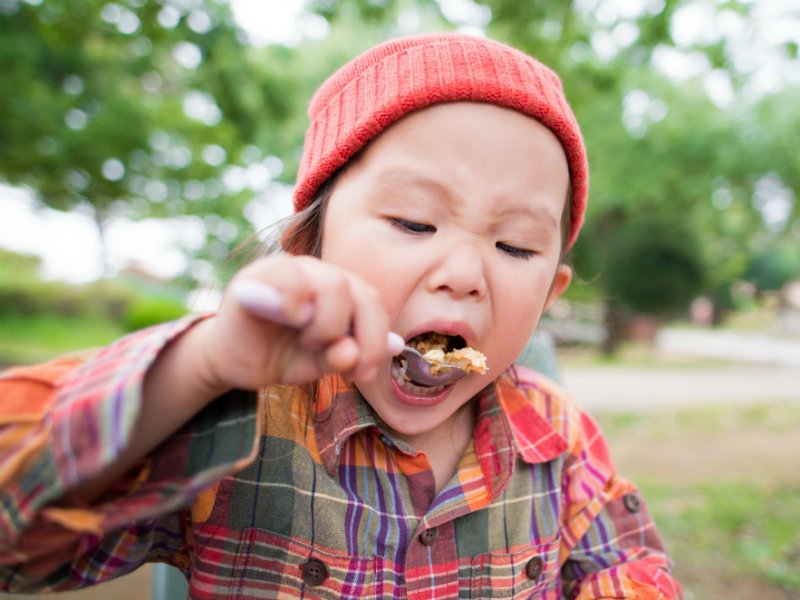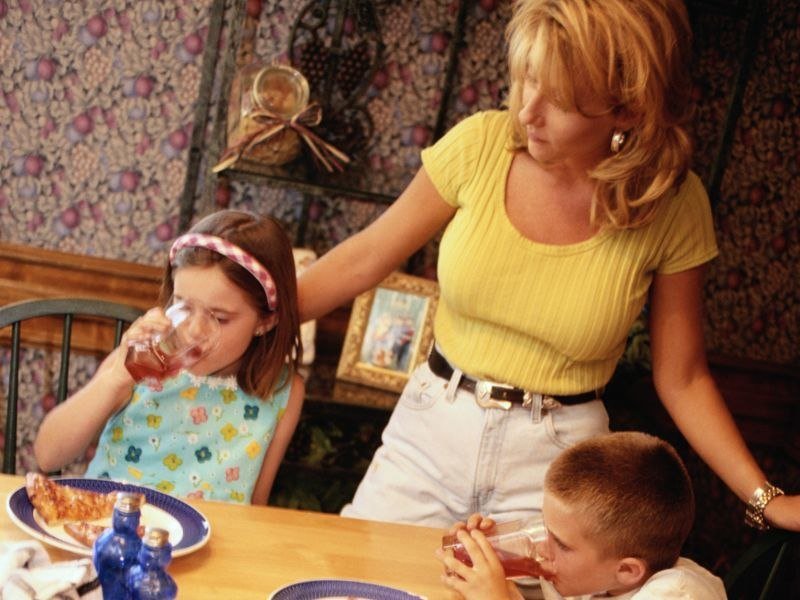
Promoting Body Positivity and Healthy Eatings Habits to Your Kids is Not as Hard as You Imagined

Data from the period of 1999 to 2016 reveals a drastic increase in obesity among all ages and severe obesity among boys aged 2 to 5 years and girls aged between 16 and 19. Obesity increases risk of dangerous diseases like joint problems, gastroesophageal reflux, Type 2 diabetes, sleep apnea, heart disease, fatty liver disease, asthma, and gallstones. Parents must not ignore the long-term wellbeing risks associated with obesity and it’s subsequent limitations on a child due to the extra weight.

The Body Positivity effort promotes accepting different shapes and sizes and helps the over-weight. With right strategies, kids shed excess pounds, adding well-being, energy, and self-esteem to improve health. The focus is on changing those behaviors over which kids and their parents have control.
Expel negative body talk
Avoid critical remarks and comments about your child’s body or even your own as such a motivation method is counterproductive. Some words that can be hurtful and demeaning are: ‘my big girl’ or references to baby fat or love handles. Instead, adopt a policy, to which the entire family adheres to; of not commenting on people’s bodies. Body shaming diminishes self-esteem and creates very negative emotions, which may lead children to turn to food and comfort eating to cope. Instead promote body image positivity inside out and teach the young ones how bodies function and feel. Encourage kids to learn about their bodies and what it can do, instead of just focusing on how it looks.
Teaching the kids that food is a fuel

Draw analogies of high-octane fuel (food) which is used in your car and how you have to properly maintain the engine by running the car regularly (giving it physical activity). This analogy then discusses what kind of food should be consumed to help the engine perform better. It helps to design a chart for the family, giving illustrations of healthy foods and ask your kids to help you shop accordingly. This will help them differentiate between dairy, nuts, fruits, whole grains, lean proteins, seeds, vegetables and once-in-a-while processed and junk food like cookies and chips. Don’t ban any kind of food but reward the kids for choosing healthier foods, otherwise it leads kids to hoard, sneak or binge on these contraband items.
Promote healthier habits
When working with overweight children, a program at any good medical center, will often ask the kids things like if they want to be less tired, breathe easier or run faster in their P.E. class? Their positive response focuses on health benefits of changing their life-style. Parents may have similar discussions with their kids.
Lead the way

Parents show how to lead a healthy life and care after your body. If concerned about your child’s weight, you must change your activity levels and eating patterns and discuss changes you and the kids themselves can make together. Aim for one family meal daily and plan snacks and meals and prep the food with the kids helping you, so they have healthy foods even when they are on the go and have fun making them with you. Kids aged 2 to 5 have 28% of total calorie intake by snacking. It is important to ensure that the consumed snacks count nutritionally.
Make outdoor activity a fun family affair
A weekly goal for physical activity could include family bike rides, hikes, walks, soccer or swimming. If children enjoy video games, select dance-based or movement-oriented games for everyone to enjoy. For families to exercise together, Riley Children’s Health and The Children’s Museum of Indianapolis opened a center with three indoor and 12 outdoor physical activity and interactive sports exhibits, including tennis, soccer and basketball. Similar facilities can be located near you. Beyond family together time, kids should include physical activity in their daily school routine.
Compliment the kids for all their efforts

Results of changes the child is making, is less important than giving positive feedback about efforts made. Teenagers particularly yearn for positive feedback from their parents. The goal isn’t to see the scale numbers drop but to stop sudden weight gain as your kids grow older or hold weight steady for height to catch up. Meantime, focus on the care taken of their bodies and help strengthen their determination.
Use social media to your advantage
Research shows strong negative association between time spent on social media and kids’ body image. But a supportive environment at school and positive parental influence mitigates negative effects among girls aged between 12 and 14. Harp on constructive qualities to help view their body structure and type as only a small component of their personality. Encourage kids to engage in social groups and networks that are helpful, such as groups for artistic, cultural, or musical interests.
More in Health & Fitness
-
`
4 Simple & Efficient Tips to Keep Your Skin Glowing This Winter
If you are someone who has a proper skincare routine, you must be bothered by dry skin in winter. Do you...
November 2, 2023 -
`
Summer Vibes: 5 Ideas for Unforgettable Hangouts with Friends
Summer is the season for outdoor fun and creating unforgettable memories with friends and loved ones. Whether you’re looking for a...
July 5, 2023 -
`
What Do These Skin Problems Tell about Your Health Condition?
Some medical conditions are tricky to spot simply because they are hidden and almost show no symptoms. However, they can manifest...
June 13, 2023 -
`
Wellness Tips to Help You Get Rid of Your Winter Blues
Winters can be a tough season not just for our body but also for our mental health. The sun rises later than usual...
May 7, 2023 -
`
Exploring the Latest Skin Care Trends: What’s Hot and What’s Not in 2023
The world of skin care is constantly evolving, with new ingredients and treatments popping up every year. With so many different...
April 24, 2023 -
`
Celine Dion Values Her Skin So Much That She Dropped $2 Million For This Device!
Utmost focus has been given to skincare, especially during this quarantine season, as more and more people opt to take care...
April 11, 2023 -
`
Samuel L. Jackson is a Vegan and He’s Not Ashamed to Admit it
Samuel L. Jackson, the iconic Hollywood actor, has been expressing his preference for vegan eating since August, 2018, due to some...
April 6, 2023 -
`
Terry Crews Uses THIS Technique to Maintain his Impressive Physique
Crews is a big boy. The Brooklyn Nine Nine actor maintains his weight at 245 lbs and being this bulked up...
April 5, 2023 -
`
The Most Famous Procedures in the Plastic Surgery Capital of the World
If you think that the United States is the place where the most number of cosmetic surgeries in the world happen,...
April 5, 2023















You must be logged in to post a comment Login